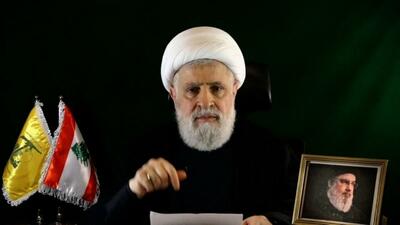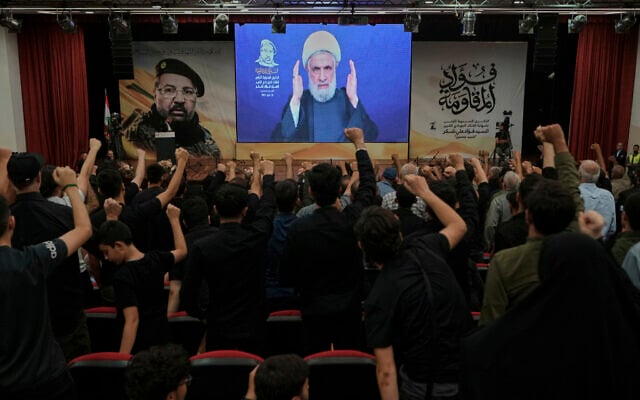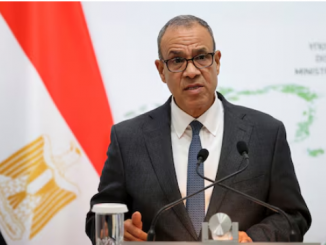
| Published August 16, 2025
This comes after President Joseph Aoun told a senior Iranian official on Tuesday that no group in Lebanon is permitted to bear arms or rely on foreign backing.
Hezbollah Threatens Lebanon Over Disarmament Efforts
Beirut, Lebanon – August 2025 – Hezbollah’s deputy leader, Naim Qassem, has issued a stark warning to the Lebanese government: any attempt to disarm the group would lead to “no life in Lebanon.” This statement comes amid U.S.-backed plans to centralize control over all weapons in Lebanon, which would effectively target Hezbollah and similar armed factions.
Qassem emphasized that Hezbollah and its Shi’ite ally, the Amal movement, have so far refrained from organizing street protests, believing dialogue with authorities is still possible. However, he warned that if the government confronts the group, protests could escalate, potentially targeting institutions including the U.S. Embassy.
The push for disarmament follows a series of regional conflicts. Hezbollah’s arsenal and influence were challenged after Israel targeted the group in 2024, leading to thousands of casualties. A U.S.-brokered truce last year obligated Lebanon to disarm unauthorized armed groups. The truce also called for Israel to halt attacks and withdraw from occupied Lebanese territories, but Hezbollah insists Israel must act first before any disarmament occurs.
Lebanon’s fragile sect-based political system complicates enforcement. During key cabinet meetings, Shi’ite ministers either absented themselves or walked out, highlighting political divisions. While Hezbollah maintains support among Lebanon’s Shi’ite population, national calls for its disarmament are growing.
People raise their fists as Hezbollah leader Naim Qassem delivers a televised speech in Dahiyeh, a southern suburb of Beirut, Lebanon, July 30, 2025. (AP Photo/Bilal Hussein)
 Implications
Implications
Here’s a structured overview of the implications of Hezbollah’s threats and Lebanon’s disarmament issue:
Political Implications
-
Government Fragility: Hezbollah’s threat underscores the weakness of Lebanon’s central government. Shi’ite ministers boycotting cabinet meetings signals deep political fragmentation.
-
Sectarian Tensions: Disarmament efforts risk inflaming sectarian divides, particularly between Shi’ite Hezbollah supporters and other Lebanese communities.
-
Reduced State Authority: Failure to enforce disarmament may embolden other non-state armed groups, weakening Lebanon’s sovereignty.
Security Implications
-
Risk of Civil Unrest: Hezbollah’s warning of “no life in Lebanon” suggests potential large-scale protests or violent clashes if disarmament is attempted.
-
Potential Escalation with Israel: Any Lebanese government action against Hezbollah could prompt retaliation, risking renewed conflict along the Israel-Lebanon border.
-
Regional Proxy Conflicts: Hezbollah’s ties to Iran and involvement in regional conflicts (e.g., Gaza war support) may drag Lebanon further into broader Middle East hostilities.
Economic Implications
-
Investor Hesitancy: Political instability deters foreign investment and exacerbates Lebanon’s ongoing economic crisis.
-
Aid and Sanctions Impact: International aid may be contingent on disarmament and governance reforms, complicating Lebanon’s economic recovery.
International Implications
-
U.S. and Israel Pressure: Disarmament is linked to U.S.-brokered peace and Israel’s security concerns; failure could strain Lebanon’s diplomatic ties.
-
Iranian Influence: Hezbollah’s resistance highlights Tehran’s continued leverage in Lebanon, affecting regional balance-of-power calculations.
 Overall Takeaway:
Overall Takeaway:
Hezbollah’s recent threats make it clear that any attempt to forcibly disarm the group could trigger widespread civil unrest or violent clashes, significantly destabilizing Lebanon. The country’s central government faces serious challenges in enforcing its policies due to deep sectarian divisions and political boycotts, which limit its ability to assert control over armed factions like Hezbollah. This situation carries important regional and international implications, as it intersects with Israeli security concerns and Iranian influence, potentially turning Lebanon into a flashpoint beyond its borders.
Despite these threats, Hezbollah has so far refrained from immediate protests, indicating that dialogue and diplomatic engagement remain the only realistic paths to avoid escalation. At the same time, the country’s fragile political situation exacerbates economic instability and threatens social cohesion, underscoring the urgency of careful management to prevent further deterioration. In short, Lebanon faces a precarious balance between enforcing state authority, maintaining internal stability, and navigating complex regional pressures.
SOURCES: ZEROHEDGE – Hezbollah Chief Threatens ‘No Life In Lebanon’ If Government Moves To Disarm It
THE TIMES OF ISRAEL – Hezbollah chief threatens ‘no life in Lebanon’ if government tries to seize weapons
REUTERS – Hezbollah warns Lebanon ‘will have no life’ if state moves against it
THE JERUSALEM POST – Hezbollah chief warns Lebanon: ‘No life’ if government confronts terror group






Be the first to comment